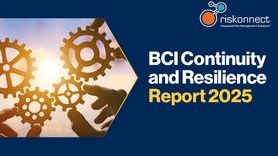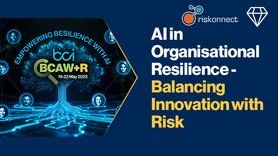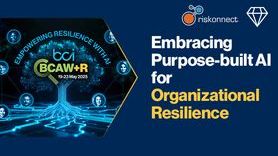Adoption of operational resilience may be high – but is it really operational resilience?
“I heard a speaker at [a major event in the City of London] who actually mixed organizational resilience and operational resilience, and when I asked him about the differences his answer wasn’t clear.” Head of Operational Resilience, Banking, UK
According to the latest BCI Operational Resilience Report, Operational Resilience is often confused with Organizational Resilience, with some organizations still questioning the difference between Business Continuity and Operational Resilience. Indeed for many Resilience professionals, Operational Resilience is simply ‘Business Continuity done well’ – this is often aligned with using ISO 22301 to build Operational Resilience programmes.
However, as the report clarifies, the two are completely different things. Business Continuity focuses on ‘getting processes back up and running in an agreed timescale’, whereas Operational Resilience focuses on the principle of ‘having to get a process up and running before it causes intolerable harm to the business, its customers or its peers’.
There is also disagreement in finding a definition of Operational Resilience. Indeed, some confuse it with the Organizational Resilience definition – a slippery slope considering that the two terms should not be used interchangeably. Moreover, when defining Operational Resilience, the report found some professionals focus on specific aspects like technology, cyber security, data loss, IT and Disaster Recovery.
The report also analysed how organizations identify their impact tolerances. Some admitted to using the BIA as a main tool – which was one of the processes advised by the Bank of England/PRA Policy Statement of March 2021 – but some argue that the BIA only identifies RTOs, which are not a ‘copy’ of impact tolerances.
In the report, some participants also mentioned the importance of taking a strategic perspective when referring to Operational Resilience. Collaboration among disciplines and departments was found to be a key element for the success of the Operational Resilience programme, especially when it came to engaging senior management.
Senior management plays a crucial role in the embedding stage of the Operational Resilience programme. The more they are engaged at the early stages and understand Operational Resilience, the more likely the success of the programme.
The BCI Operational Resilience Report 2022 is available on the BCI website. To find out more about the findings, download your PDF copy today.
To be the first to know about BCI News follow us on LinkedIn here, or on Twitter @TheBCEye









































